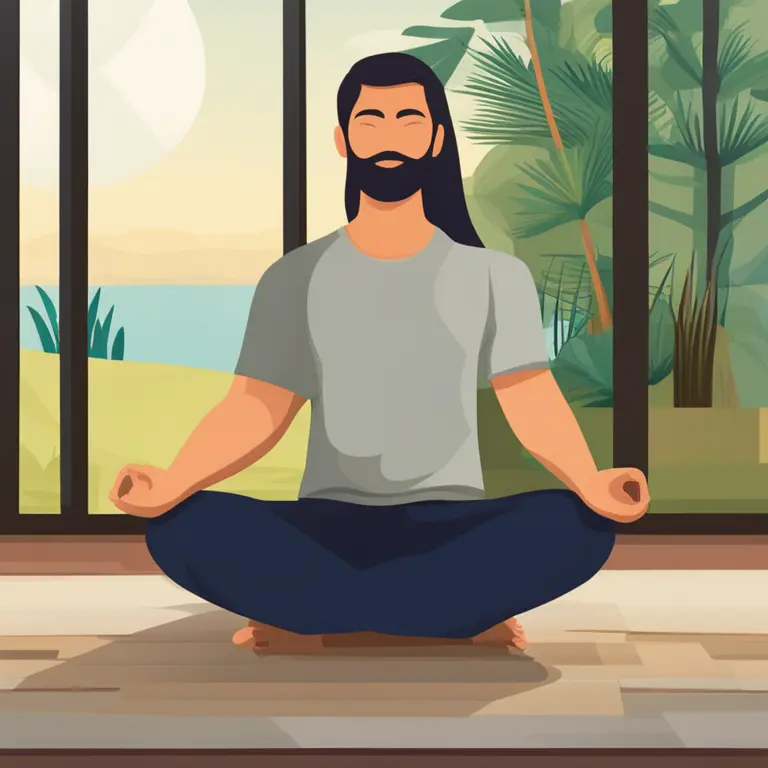
The Art of Mindful Meditation: A Guide to Inner Calm
Embark on a serene journey toward inner peace with our comprehensive guide to mindful meditation, designed to enhance your mental clarity and emotional balance.
article by Hina Kurosawa
Introduction to Mindful Meditation
Meditation has long been revered as a powerful tool for self-discovery and stress reduction. In recent years, mindful meditation has come to the forefront as a highly effective method for improving mental clarity and emotional health. By integrating mindfulness -- a state of active, open attention to the present -- with traditional meditation practices, this form of meditation teaches you to observe your thoughts, feelings, and sensations without judgment. In this article, we will guide you through the steps to begin your own practice of mindfulness meditation, setting the stage for a more peaceful and focused mind.

Creating a Space for Meditation
To start your meditation journey, create a quiet and comfortable space where you won't be interrupted. This doesn't need to be an elaborate setup; a simple corner of a room with a cushion or chair will do. The key is to have a designated area that signals to your mind it's time for your practice. Ensure this space is free from distractions and tailored to your comfort, perhaps with dim lighting or soothing colors to encourage a tranquil ambiance.

Adopting the Right Posture
Your physical posture during meditation can influence your mental state. Sit with a straight, relaxed back, either on a chair with feet flat on the ground or cross-legged on a cushion. Rest your hands comfortably on your lap or knees, and gently close your eyes or leave them half-open, softly focusing on a point in front of you. The aim is to maintain a balance of alertness and relaxation, avoiding any rigid or tense positions that could distract from your meditation.

Focusing on the Breath
Breathing is a cornerstone of mindful meditation. As you settle into your space, bring your attention to your breath. Notice the natural rhythm of your inhales and exhales without trying to change them. When your mind wanders, as it inevitably will, acknowledge the thoughts and then gently redirect your focus back to your breath. This practice of returning to the present moment is the essence of mindfulness.

Observing Thoughts Without Judgment
One of the most transformative aspects of mindful meditation is learning to observe your thoughts without attaching judgment or emotions to them. Recognize thoughts as they arise and view them as passing clouds in the sky, neither clinging to them nor pushing them away. Cultivating this non-reactive awareness allows you to break free from habitual thought patterns and develop a deeper understanding of your mind.
Incorporating Mindfulness into Daily Life
Mindful meditation practice shouldn't end when you rise from your cushion; instead, it can spill over into every aspect of your life. Try to maintain mindfulness during routine tasks, such as eating, walking, or commuting. By practicing mindfulness throughout your day, you can enhance your ability to stay present and grounded, even amidst the inevitable stresses and stimuli of modern living.
Consistency is Key
Establishing a regular meditation routine can lead to long-term improvements in mental well-being. Aim to meditate daily, even if initially for only a few minutes at a time. Consistency is more important than duration, as it is through regular practice that the benefits of mindful meditation truly accumulate and transform your mental landscape.
Nurturing Patience and Compassion
Finally, approach your meditation practice with patience and compassion for yourself. Mindfulness is a skill that develops over time and with dedicated practice. There will be days when meditation feels challenging, but remember that each moment of mindfulness is a step towards a more centered and peaceful state of being. Be kind to yourself throughout this process, and allow your mindfulness journey to unfold naturally.
Published: 1/18/2024
Modified: 1/18/2024
More predictions
Come back here soon to learn more about yourself and your future


Can Meditation Manage Depression?
Discover how meditation can contribute to managing depression, its potential benefits, and the connection between mindfulness and mental health.


Easing Pain With Mindfulness Meditation
Discover how meditation can be a powerful tool for pain management, offering natural relief and mind-body harmony.


Best Meditation Techniques for Brain Health
Discover effective meditation practices to enhance cognitive functions and maintain a healthy brain.